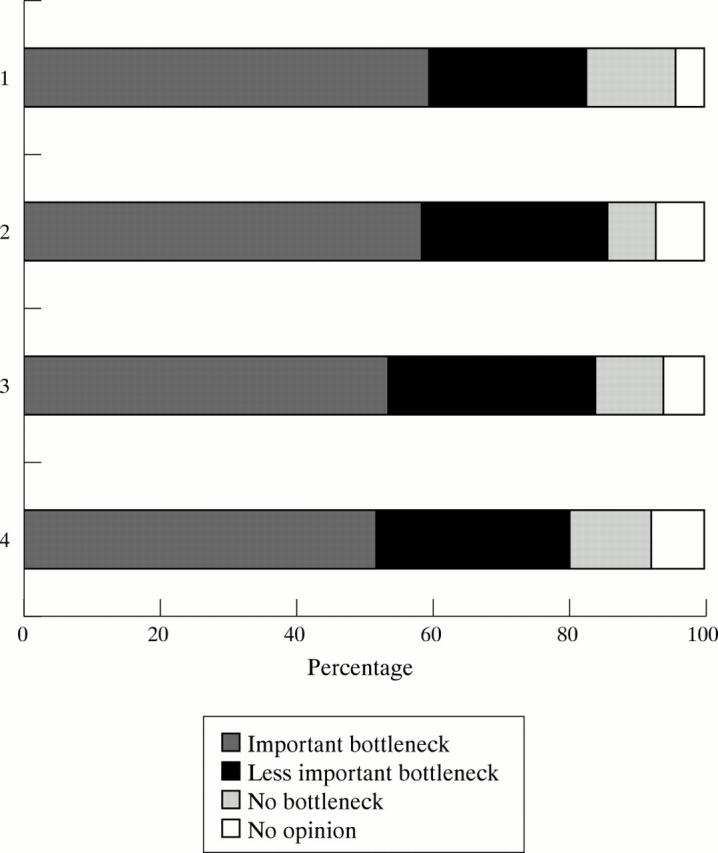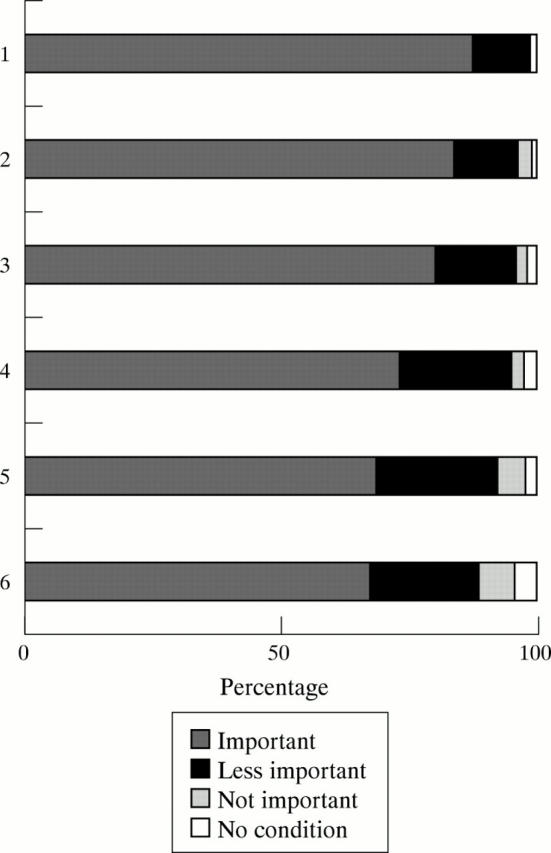Abstract
Objective: To assess the quality and quantity of communication and cooperation between Dutch rheumatologists and occupational physicians.
Methods: A postal survey among 187 Dutch rheumatologists.
Results: 153/187 rheumatologists (82%) returned the questionnaire. They considered reducing pain and fatigue to be their major responsibility in the process of occupational rehabilitation, followed by improving work participation (68/153 (44%)) and quality of work (55/153 (36%)). Although 112/153 (73%) of the rheumatologists judged the communication and cooperation with occupational physicians as reasonable to good, 119/153 (78%) of them were willing to improve the collaboration. Perceived bottlenecks mentioned were a lack of clarity about the occupational physician's position and activities, and the absence of practice guidelines. The most important prerequisites for improvement were found to be guarantees about the occupational physician's professional independence and more clarity about the competence of the occupational physicians and how they used the information provided.
Conclusion: Dutch rheumatologists are willing to improve cooperation and communication with occupational physicians. The perceived lack of clarity about their mutual tasks appears to be a major obstacle. Thus the development of a joint education programme and a guideline for occupational rehabilitation in rheumatic diseases may be appropriate first steps towards improvement.
Full Text
The Full Text of this article is available as a PDF (125.1 KB).
Figure 1 .

Perceived bottlenecks in the communication. Eleven probable bottlenecks were listed. Four bottlenecks mentioned by more than half of the responders to be important are presented here: 1, information provided may be used with the aim of rehabilitation but also for legislation of absenteeism; 2, occupational physicians may serve employers more than employees; 3, lack of clarity about occupational physicians' tasks; 4, no guidelines about cooperation in the process of vocational rehabilitation.
Figure 2 .

Ten prerequisites for improvement were listed. Six prerequisites for improvement mentioned to be important by more than half of the responders are presented here: 1, overall health status of the patient must be the major issue; 2, professional independence of occupational physicians; 3, guarantees about the use of given information; 4, specificity about the abilities of occupational physicians; 5, clarity about the goal of information provided; 6, guidelines about indication for cooperation, communication, and job delineation within the vocational rehabilitation process.


